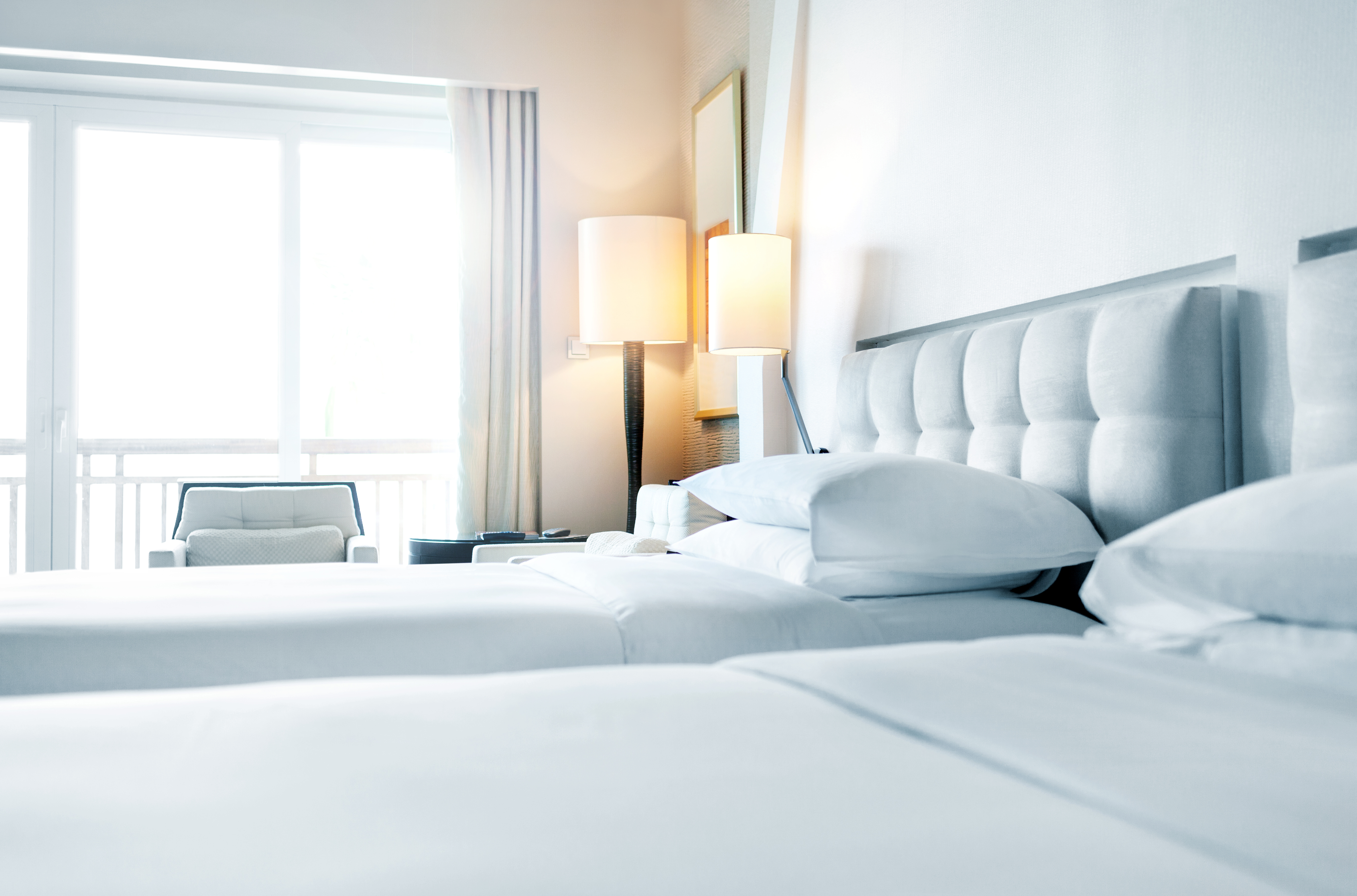 Hotel
Hotel
Indoor air quality: a way of achieving a competitive edge
Cleanliness… Charm… Comfortable bedding… Facilities… Although the main criteria for judging a hotel are obvious, there’s another one that can no longer be ignored: indoor air quality. And customers are now paying more and more attention to this even though it’s easier for them to judge whether it’s too hot or cold in their room than to intrinsically assess air quality. Be that as it may, breathing healthy and odourless air undoubtedly contributes to our well-being.

City hotels where customers can breathe!
In a hotel just like any other place, healthy and regularly renewed air contributes to the wellness of all the occupants: customers and personnel. Well filtered, it combats allergens, prevents contaminants from spreading and avoids the unpleasant experience of bad odours such as a musty smell, unacceptable in a hotel room!
In cities regularly confronted with periods of fine particle pollution, it has become crucial to know that the air we are breathing in a hotel isn’t polluted and that the nights spent there will be really beneficial. Several major hotel groups, such as Hilton Hotels & Resorts, working closely with AFPRO Filters are fully aware of the importance of “four-star air quality”. A growing number of hotels are equipped with air handling units while air quality surveillance procedures have also been put in place.
Air filters for hotels: performance and cost saving
AFPRO Filters produces and markets the Cost Saver filter range designed to ensure the highest quality of indoor air possible. These F7 and F9 filters, awarded the A+ rating by the Eurovent certification organisation, satisfy the dual requirement of a need for performance as well as energy saving, thanks to materials that are resistant to polluted air. Each part of a hotel can be the subject of suitable air filtration depending on the nature of the requirement: rooms, kitchens, lobby or restaurants.
Increasingly stricter requirements for indoor air
With air quality becoming a public health issue, regulations now impose air quality surveillance in numerous open-to-the-public buildings. Schools and childcare centres were the first open-to-the-public buildings concerned and by 2023, all buildings accessible by more “vulnerable” members of the public in particular children and the elderly will have to comply with the statutory requirements. Hotels and restaurants can only win by acting ahead of the introduction of regulations that may become very demanding.






